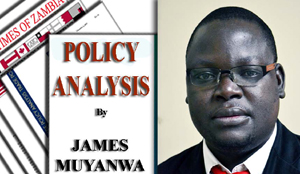 INDO Zambia Bank (IBZ) is a shining example of a successful joint venture between the Zambian Government and another country as it has grown into a reliable player in the banking sector.
INDO Zambia Bank (IBZ) is a shining example of a successful joint venture between the Zambian Government and another country as it has grown into a reliable player in the banking sector.
In terms of beneficial shareholding for the Zambian Government, IBZ now stands out from the rest and can only be compared to ZCCM-Investment Holding (IH) and six others which seemingly are success stories.
The two firms – in which the Government has different shareholding levels – have been performing well, meeting most of the financial benchmarks.
To an avid proponent of mixed economy, in which the overnment should have some semblance of a role in the running it, these splendid performances of the two firms have been true testimonies of the embodiment of the belief.
Take for instance last year, ZCCM –IH, the successor of the ZCCM declared the first dividends since its conversion into an investment holding company for the Zambian Government.
The total dividends it declared translated into K250 million while it raised K257 million as capital.
Other feats the firm recorded include the rise in revenue by 163 per cent on the year to K803 million from the K481 million the previous year.
The profit after tax went up by 57 per cent to K892 million from K568 million while the total asset value rose by 20 per cent to K8.7 billion from K7.3 billion.
The company’s splendid performance continued in various other financials.
ZCCM-IH wholly owns the Ndola Lime Company (NLC) while has 35 per cent shares in Maamba Coal Mine and 20 per cent each in Kansanshi mining in Solwezi, Konkola Copper Mine (KCM), Copperbelt Energy Corporation (CEC), Lubambe Copper Mine and CNMC Luanshya Copper Mine.
Further, the holding firm has 15 per cent shares each in NFC Africa Mining and Chibuluma Mine while it has 10 per cent in Mopani Copper Mine and Chambeshi Metals.
For the jointly-owned bank, IZB managing director Shankardas Gupta said it had in 30 years recorded massive growth and had become a reliable development partner in the country.
He said this last Friday during the official opening of the bank’s new branch in Lusaka’s Chilenje Township.
Mr Gupta’s words are not a mere self-trumpeting scream but real, as tangible evidence in form of annual financial results show.
The bank has been declaring dividends to the Zambian government, which owns 40 per cent of the total shares in the joint venture.
IZB was incorporated in October, 1984 as a joint venture between the Government of Zambia and that of India (represented through its three
large public sector banks, namely, Bank of India, Bank of Baroda and Central Bank of India).
The three Indian banks each accounts for 20-per cent share capital with the remaining 40 per cent being held by the Government of Zambia, currently through the Ministry of Finance.
Just last week, for instance, IZB handed over K6.77 million to Finance minister Alexander Chikwanda as the share of dividend payable to the government as a 40- per cent shareholder.
This was after recording an operating profit of nearly K74 million and a net-profit of K46.15 for the financial year ended December 31, 2014.
Over the 30-year period, IZB has become a solid bank which commands strong financial fundamentals with high net worth, high capital adequacy ratio, very comfortable liquidity position, good quality asset portfolio and a negligible net non-performing asset (NPA) position.
Random selection of the financial results of some of the years shows that in 2006 it declared a K0.6 million worth of an interim dividend to Zambia for the 40 per cent shares the government held in the bank.
The bank paid dividend of K8.8 million to the Zambian government in a three-year period of up to 2011.
There are about 40 state owned enterprises (SOEs) in the country and currently IZB is among only seven such firms which have been declaring dividends.
IZB has become a formidable and viable investment for the government and the continued payment of dividends to the Zambian government, which is any shareholders’ dream, is noteworthy.
One hopes that by transferring the government shareholding in IZB and other SOEs to the Industrial Development Corporation (IDC), the government will also be transferring the profitability.
Finance minister Alexander Chikwanda said last week that the government was in the process of transferring its shareholding in IZB and others to the IDC.
Mr Chikwanda believes that IDC has the capacity, the skill and the appropriate culture to better superintend government interests.
At an apt time we will look at the likely merits and demerit of that move.
For comments call: 260 0955 431442, 0977 246099, 0964 742506 or email: jmuyanwa@gmail.com.






